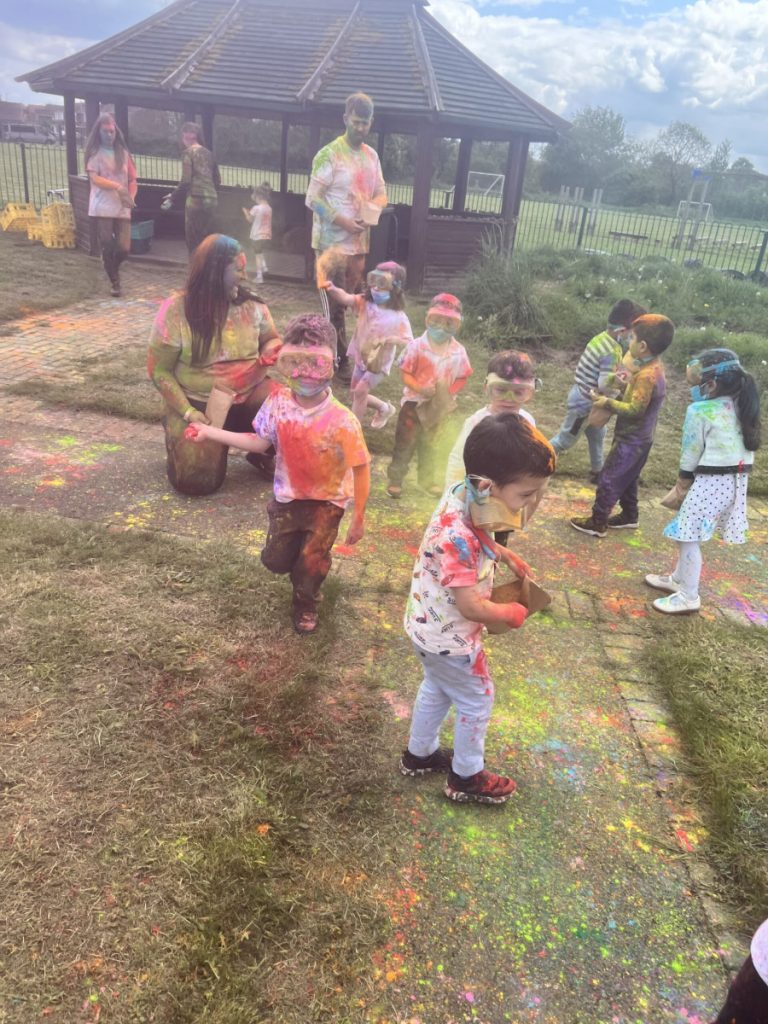Curriculum Lead : Mrs N. Foley
Intent
Our belief is that, using an enquiry-based model well, children’s critical thinking skills can be developed, their motivation to learn increased, and their knowledge and understanding of, and empathy with people and their beliefs, religious or otherwise, will be enhanced. This approach takes very seriously the philosophy that children are free to make their own choices and decisions concerning religion and belief. RE does not try to persuade but rather to inform and develop the skills with which evaluation can take place.
Implementation
R.E. is taught in a weekly lesson, by each class teacher. Discovery R.E. is the programme used to support the teaching of R.E. KS1 follows the programme to ensure even and thorough coverage of the key religions as set out in the Middlesbrough Agreed Syllabus. Work is recorded in R.E. books and is evidenced using a variety of outcomes as suggested by the agreed syllabus.
Religious Education taught at Kader Academy (as set out in the Middlesbrough Agreed Syllabus- launched in 2020)
- Offers opportunities for personal reflection and pupils’ spiritual, moral, social and cultural development as it encourages pupils to examine the significance of their learning in relation to themselves and others.
- Enables pupils to explore their own beliefs (whether they are religious or not), ideas, feelings, experiences and values in the light of what they learn.
- Encourages empathy and respect.
- Enables pupils to develop their own sense of identity and belonging.
- Promotes respect for the right of others to hold different beliefs, values and ideas.
- Develops an aptitude for dialogue so that they can participate positively in our society with its diverse religious and non-religious worldviews.
- Enables pupils to have a nuanced and informed understanding of political, social and moral issues that they will need to face as they grow up in an increasingly globalised world.
- Helps pupils deal positively with controversial issues, to manage strongly held differences of belief and to challenge stereotypes and prejudice.
Impact
At Kader Academy, we seek to ensure that all pupils in our school are educated to develop spiritually, academically, emotionally and morally to enable them to better understand themselves and others and to cope with the opportunities, challenges and responsibilities of living in a rapidly changing, multicultural world. Regular assemblies and celebrations of religious and non-religious festivals and events, implemented alongside weekly R.E. lessons, will help to celebrate the diversity of the wider community, including their beliefs, traditions, culture, language and history.
Assessment in Discovery RE is both formative and summative. Clear over-arching learning objectives and the key- coloured boxes within the planning allow the teacher to be mindful of the assessment elements within that step that can formatively help them pitch and plan subsequent lessons, and also the content which can contribute to the overall summative assessment completed in Step 3 and when the unit is completed. The three colour-coded aspects are: Green: personal resonance with or reflection on the subject content in relation to the enquiry question. Blue: knowledge and understanding of the subject content in relation to the enquiry question Red: evaluation/critical thinking in relation to the enquiry question.

